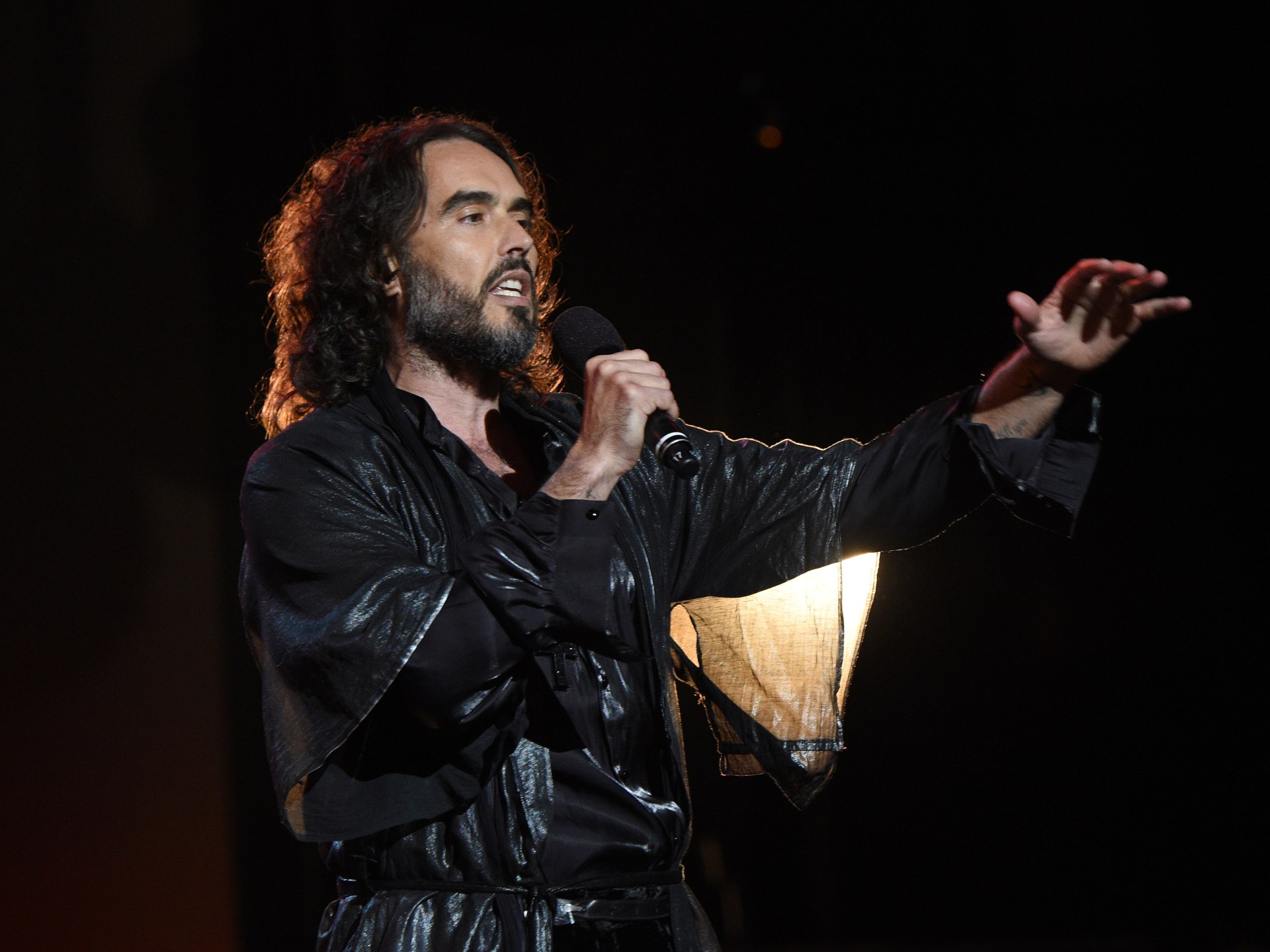Police receive report of a sexual assault alleged to have taken place in Soho, London, in 2003, after media reports relating to alleged assaults between 2006 and 2013.
Police in the UK say they had received an allegation of a sexual assault dating back 20 years after media outlets reported claims by several women about Russell Brand, as promoters postponed the remaining dates in a string of live gigs by the comedian, who denies the allegations.
A talent agency and a publisher also parted company with Brand over the claims, which have left the UK entertainment industry facing questions about whether the comedian’s behaviour went unchallenged because of his fame.
Brand, 48, said on Saturday he had never had nonconsensual sex when The Sunday Times newspaper and Channel 4 TV’s documentary show Dispatches reported that four women had accused him of sexual assaults, including a rape, between 2006 and 2013.
Police said since those allegations were published and broadcast they had received a report of an assault alleged to have taken place in Soho, central London, in 2003.
“Officers are in contact with the woman and will be providing her with support,” the Metropolitan Police statement said.
“We first spoke with The Sunday Times on Saturday, 16 September and have since made further approaches to The Sunday Times and Channel 4 to ensure that anyone who believes they have been the victim of a sexual offence is aware of how to report this to the police.”
There was no immediate comment from Brand’s representatives following the police statement.
Brand, the former husband of US singer Katy Perry, issued a video message on social media to deny the “very serious criminal allegations” hours before they were published on Saturday.
“These allegations pertain to the time when I was working in the mainstream, when I was in the newspapers all the time, when I was in the movies. And as I’ve written about extensively in my books, I was very, very promiscuous,” Brand said.
“Now, during that time of promiscuity, the relationships I had were absolutely always consensual,” added the comedian, known for his flamboyant style and appearance who has starred in a number of films such as Get Him to the Greek.
The Times and Dispatches said one woman had made an allegation of rape, while another said Brand assaulted her when she was 16 and still at school. Two of the accusers had reported the incidents occurred in Los Angeles.
The reports of the allegations about Brand, once one of the country’s most high-profile comedians and broadcasters, have dominated British media since they appeared.

He was in the middle of a stand-up tour and was due to perform at the Theatre Royal Windsor on Tuesday, but this has now been cancelled.
“We are postponing these few remaining addiction charity fundraiser shows, we don’t like doing it – but we know you’ll understand,” said a statement from his tour promoters, shared by the theatre.
The BBC, on whose radio programmes he worked between 2006 and 2008, said it was urgently looking into issues raised by the allegations and Banijay UK, the production company behind a television show once hosted by Brand, said it too had launched an urgent internal investigation.
“These are very serious and concerning allegations, and you will know the Met Police has asked anyone who believes they have been victim of a sexual assault to come forward and speak to officers,” a spokesperson for British Prime Minister Rishi Sunak told reporters.
Conservative legislator Caroline Nokes, who chairs the House of Commons Women and Equalities Committee, urged police in both Britain and the United States to investigate the “incredibly shocking” allegations.
“This merits and needs a criminal investigation, because for too long we have seen men – and the perpetrators of these sorts of crimes are almost invariably men – not being held to account for their behaviours and their actions,” she told BBC Radio.
The claims have renewed debate about the “lad culture” that flourished in Britain in the 1990s and early 2000s, and the misogyny that still percolates on the internet.
